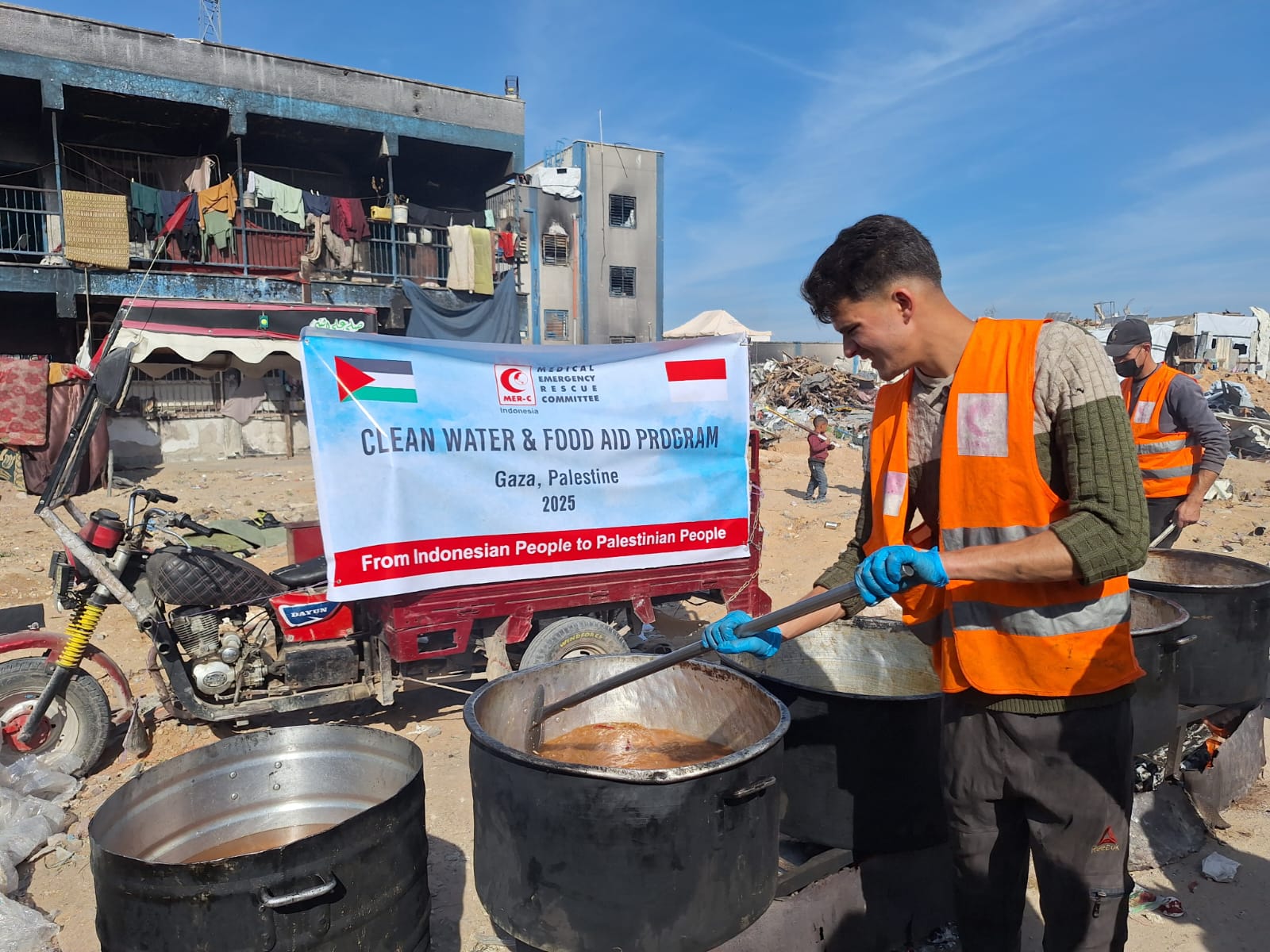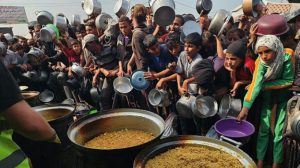Gaza, MINA – The World Food Program (WFP) announced Tuesday it has provided food parcels to approximately 1 million people across Gaza during the three-and-a-half-week ceasefire period, though ongoing access restrictions continue to hinder efforts to address the full scale of hunger in the territory, according to Anadolu Agency.
Abeer Etefa, WFP spokesperson, told reporters in Geneva that while the distributions mark the first regular round of food parcel aid since April, the agency is falling short of its target to reach 1.6 million people. “Supplies are still limited, so each family is receiving a reduced food ration, one parcel enough for 10 days,” Etefa explained.
The agency currently operates 44 distribution points, well below its goal of 145. In addition to food parcels, WFP supports 17 bakeries, nine in southern and central Gaza and eight in the north providing daily fresh bread to around 700,000 people.
Etefa reported success in digital cash assistance, with 200,000 people now receiving digital payments, meeting the monthly target for that program. However, she emphasized that physical access remains a critical challenge. “We really need more access, more border crossings to be opened, and more access to key roads inside Gaza,” she stated, noting that only two border crossings are currently operational and deliveries to the north require long detours through damaged areas.
Also Read: UNRWA: 90% of Gaza’s Population Depends on Humanitarian Aid Amid Israeli Restrictions
Since the ceasefire began, WFP has brought 20,000 metric tons of food into Gaza roughly half of what is needed. Despite slight improvements, the agency said most families still rely primarily on cereals, pulses, and dry food rations.
The humanitarian situation in Gaza remains severe following months of conflict. Israeli attacks since October 2023 have killed close to 69,000 people, mostly women and children, and injured over 170,000 others. Israel’s nearly 18-year blockade of Gaza tightened in March when border crossings were closed and food and medicine deliveries blocked, had pushed the enclave into famine before the ceasefire.
Aid deliveries resumed after a ceasefire between Israel and Hamas took effect on October 10, based on a 20-point peace plan proposed by US President Donald Trump, though Israel has been accused of multiple violations of the truce.[]
Mi’raj News Agency (MINA)
Also Read: Two Million Israelis Face Looming Mental Health Crisis Amid Gaza War





























 Mina Indonesia
Mina Indonesia Mina Arabic
Mina Arabic